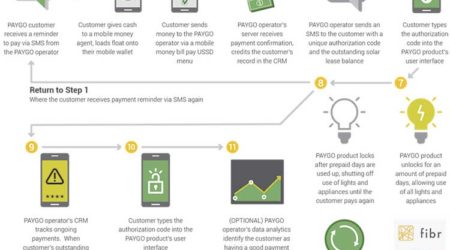Are Fintech Companies Going to Threaten Mainstream Financial Service Providers in the Next Five Years?


A closing panel at this year’s EMERGE 2016 Forum on Consumer Financial Health debated this question. Panelists came from large incumbents MasterCard and Prudential (which also have extensive fintech investments and accelerator-type initiatives underway as well as founder of a US fintech startup called LendStreet. The incumbents argued yes, the startup no. As in any debate of this kind, the reasons turn on interpretation of the question: what does ‘seriously threaten’ mean anyway? Jennifer Tescher, the CEO of conference conveners CFSI, expected ‘mashups’ between fintech startups and established providers to make the most impact. But if this panel were a fair display of sentiment in the sector, incumbents are taking the threat seriously, and some disrupters are struggling to scale their offerings to achieve viable business cases.
So, is there still real heat in fintech or just the steamy vapors of hype? This past week, seasoned researchers and commentators David Evans and Richard Schmalensee penned a blogpost on website Pymnts.com which effectively questioned whether the ‘fintech emperor’ had any clothes. They cite the rapid rise and recent fall of former star fintech ‘unicorn’ Lending Club: personified by the departure of its emperor-like CEO Renaud Laplanche. They argue that this was no fundamentally new democratized P2P lending model, but instead a rather basic model of digital consumer credit which was fueled by hedge fund money looking for enhanced returns which is now going elsewhere.
Despite more cautions like this about hype, I witnessed at first hand at EMERGE how fundamentally healthy at least some parts of the US fintech sector still are — if ‘health’ in this context means the continued entry of bright new entrants to the market and their ongoing ability to access capital in ways which would make international fintech companies very jealous. CFSI’s Financial Solutions Lab, funded by a grant from JP Morgan Chase, showcased 16 US fintech companies which offered innovative solutions in response to its second challenge: how to increase the resiliency of consumers to weather shocks? These 16 companies were showcased at a fair on the first night of the conference (see photo above).
Speaking with a number of the founders who were present, I was struck by how many, despite being early stage, had already had one or more funding rounds and were not in general funds-constrained. Their main reason for applying to the Solutions Lab was not the financing which it offers (up to $250,000 each) or even the support services, useful as those services may be, but rather the network and contacts on which success of many of their products relied. Conferences like EMERGE as well as other activities supported by the Lab, help to open the doors of potential clients in the financial sector to these new players by giving them attention and profile. Eight of the sixteen finalists were chosen by a panel of judges and announced at the event to received the extended package of support offered by the Lab for its next cohort. With names like eCredithero, which helps consumers fix their credit reports for free, and WiseBanyan, which claims to be the world’s first free financial advisor, maybe these fintech startup companies will be among those who threaten existing providers in the future. But they will all need substantial scale to sustain themselves beyond the early capital raising.



